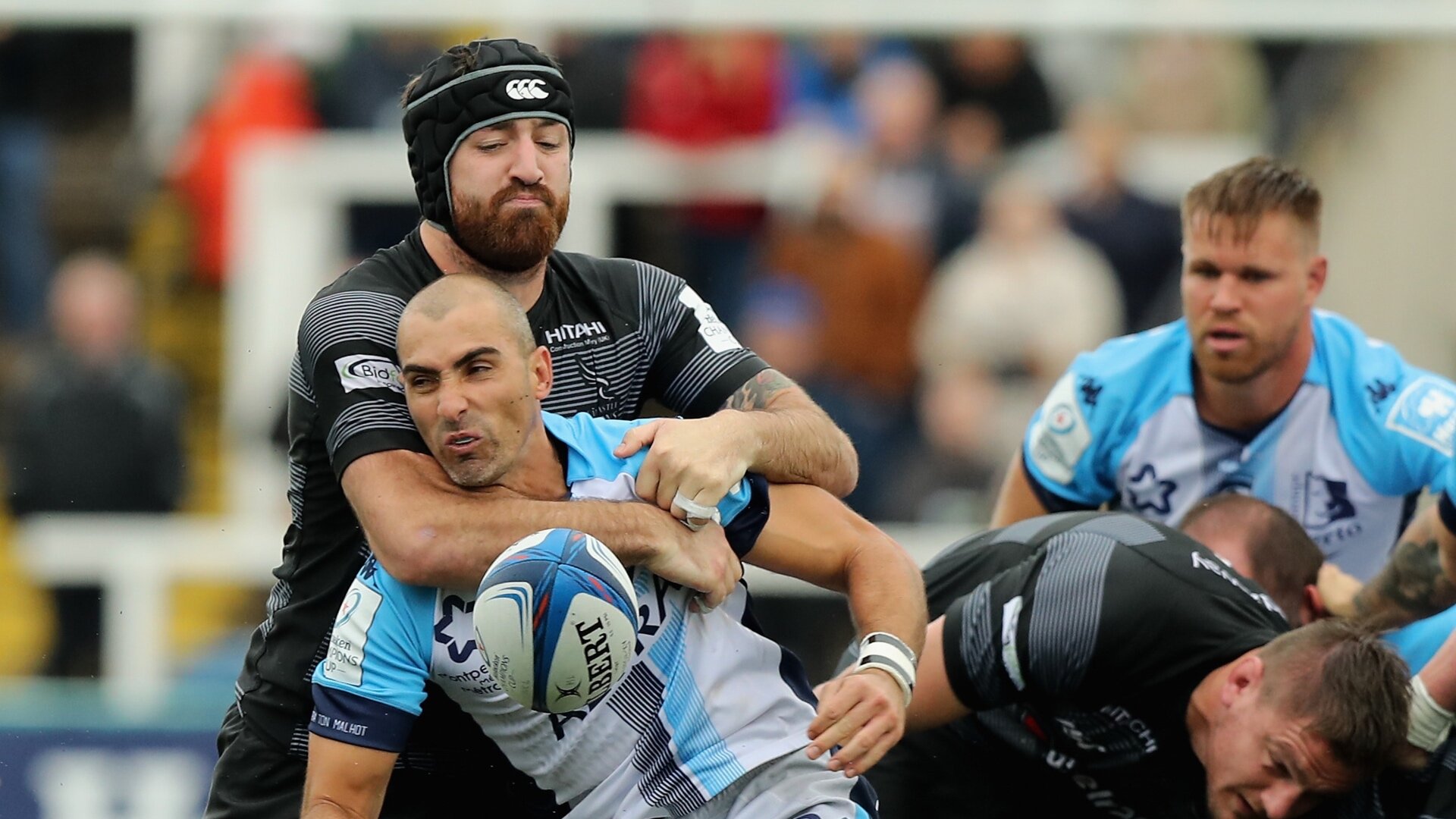Red card opens the door for Farrell to strike late for Connacht

Replacement Tom Farrell’s 85th-minute try ended Cheetahs’ blistering start to the Guinness PRO14 season, Connacht winning an epic six-try contest 24-22 in Galway.
Trailing 22-19, Connacht’s bravery in turning down two kickable penalties was rewarded when Farrell brilliantly stretched over past three defenders for his second score during a dramatic final 14 minutes.
The Conference A leaders, who gained a perfect 15 points at their Bloemfontein fortress in recent weeks, had seemingly done the hard work in fighting back from 14-5 down at half-time with Ruan Pienaar kicking a penalty and converting tries from Rhyno Smith and Clayton Blommetijies.
However, Connacht took full advantage of centre Dries Swanepoel’s 70th-minute red card for a dangerous head-led challenge on Caolin Blade. Farrell bagged a late brace to add to first-half scores from Niyi Adeolokun, on his seasonal debut, and Kieran Marmion. Joseph Dweba notched the visitors’ first-half effort.
The fast-paced round four tie had burst into life when Conor Fitzgerald motored through a gap on a flying 13th-minute break. Connacht’s young fly-half popped up a few phases later to show soft hands in sending Adeolokun sprinting over to the right of the posts.
(Continue reading below…)
Swanepoel had a score ruled out for a forward pass from Blommetijies, but the Cheetahs capitalised on successive penalties to strike from a powerful 28th-minute lineout maul. Hooker Dweba plunged over for his fifth try of the season, which went unconverted.
The searing pace of the Cheetahs back-three caused problems for Connacht, although Adeolokun was just as elusive. He carved open some space via Kyle Godwin’s 37th-minute skip pass and evaded two more defenders to lay off for Marmion to finish off and Fitzgerald converted.
After the home forwards dug deep to prevent a second Cheetahs maul try before the interval, a nasty-looking injury ended Gavin Thornbury’s involvement and a Pienaar penalty drew the South Africans closer in the 45th minute.
Probably the hardest presser he's ever had to give #AllBlacks #WALvRSA #RWC2019 #englandrugby https://t.co/iXfFUV6cB4
— RugbyPass (@RugbyPass) October 26, 2019
Connacht were left to rue two lost lineouts in attacking positions as the Cheetahs clinically turned the tables. Full-back Smith ran in his sixth try of the campaign, showing his blistering pace from the left wing, and Benhard Janse van Rensburg’s well-timed 61st-minute pass released winger Blommetijies for his crisp finish.
Pienaar landed both conversions to make it 22-14 and the in-form South Africans were on course for their first ever victory on Irish soil. Despite lock Sintu Manjezi’s huge workload in defence, Swanepoel’s dismissal invited Connacht forward and Farrell struck from a 71st-minute maul.
Fitzgerald was unable to convert, and although he kicked his side back into the visitors’ 22, Connacht’s lineout let them down. Captain Jarrad Butler backed the scrum late on, twice turning down close-in shots at the posts, and it paid off when a sweeping move allowed Farrell to reach out for the line.
WATCH: Former Connacht boss Warren Gatland is absolutely fine with some people writing off Wales’ World Cup semi-final chances against South Africa
















